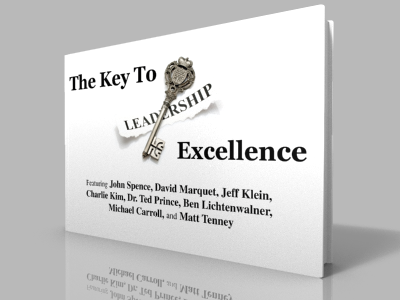How to Become What Jim Collins Calls A Level 5 Leader: An Interview With Mary Jo Asmus

A former executive in a Fortune 100 company, Mary Jo Asmus, PCC is the founder and president of Aspire Collaborative Services. She is an executive coach, writer, and consultant who partners with great leaders to help them become even greater at developing, improving, and sustaining relationships with the people who are essential to their success.
A part of your executive coaching work that I find very interesting is that you actually create action plans for helping leaders become “Level 5 leaders,” which are leaders that Jim Collins found through extensive research to be most effective at taking an organization from “good to great.” Could you share your thoughts on why humility and high achievement drive for the greater good are such important qualities of Level 5 leaders?
First of all, I want to make it clear that I don’t create the action plans; the leaders I work with do, with my guidance, based on feedback they’ve received and behavioral goals they are passionate about working on. In a way, this speaks directly to humility (the feedback addresses their “opportunities for development”) and drive (their desire to work on goals that are important to them to help them become great leaders). So we start out with these characteristics of humility and drive from the very start as foundational to the work we do.
Humility is important because it keeps a leader in a learning mindset. The humble leader understands that they don’t know it all, and that they need to count on others to help them. This is important in our fast moving, competitive business world. If a leader doesn’t continually stay in touch with others in order to learn, the pace of change may get ahead of them, causing them to fall behind and ultimately fail.
Drive is important to achieve goals, pure and simple. Leadership is simple in concept, difficult in practice. Very few are actually “born leaders” in my opinion, and it takes significant effort for most to bust through the barriers to become a Level 5 leader. Although I completely understand Jim Collins’ definition of Level 5 leader who is focused on the “greater good” of the company, many of the barriers experienced by a leader in critical stages of their development are self-imposed, requiring a leader to have the energy and ambition to look at themselves with a critical eye and overcome them. This takes a lot of courage and requires an internal focus before a leader can be fully focused on goals for the organization.
Could you share the top three most important ideas you would offer for helping a leader become a Level 5 leader?
1. Get honest feedback often from your stakeholders in a way that they can’t B.S. you (confidential 360 instruments and interviews conducted by a third party are the best way to get this kind of feedback). Find out what behaviors are working and which ones aren’t, and get to work on yourself.
2. Know yourself well. The better you know how you think and react, the better you know what’s important to you, the better you’ll be in a calamity, and you will have at least one of those in your leadership journey.
3. Take care of yourself. Even though a level 5 leader may want to give away everything for the good of the company, if they give away their mental or physical health, they cannot lead well. This requires as much attention to one’s physical and spiritual energy as to their vision and passion for the organization.
Part of your work includes helping leaders move from “me” to “we.” Could you elaborate on what you mean by this?
Most leaders can become better at relationships with those around them. This requires effort, because so many of them have been promoted because they are great at getting things done, but may lack some critical people skills. Getting things done as a lone wolf might work for a while, but at a critical juncture, they realize they can’t do it all themselves. Leadership isn’t a one-person show, and the few times that I’ve seen someone believe that is the case, they’ve burned out or just plain failed. The best leaders I know put people first, knowing that when they’ve developed great relationships and a system of support around them, they’ll be stronger and more successful than they would by themselves.
Why do you think this is so important? Are there specific, measurable business outcomes that you’ve found are more easily achieved by a leader who has moved from “me” to “we”?
How can a leader develop a more self-less, we-centered mentality?







